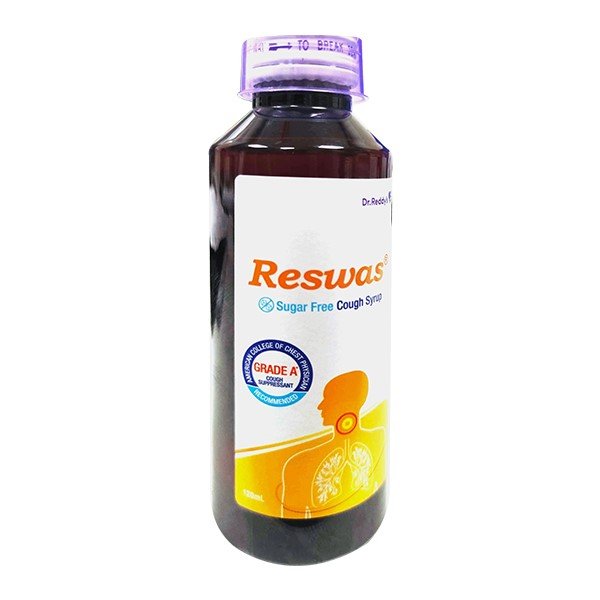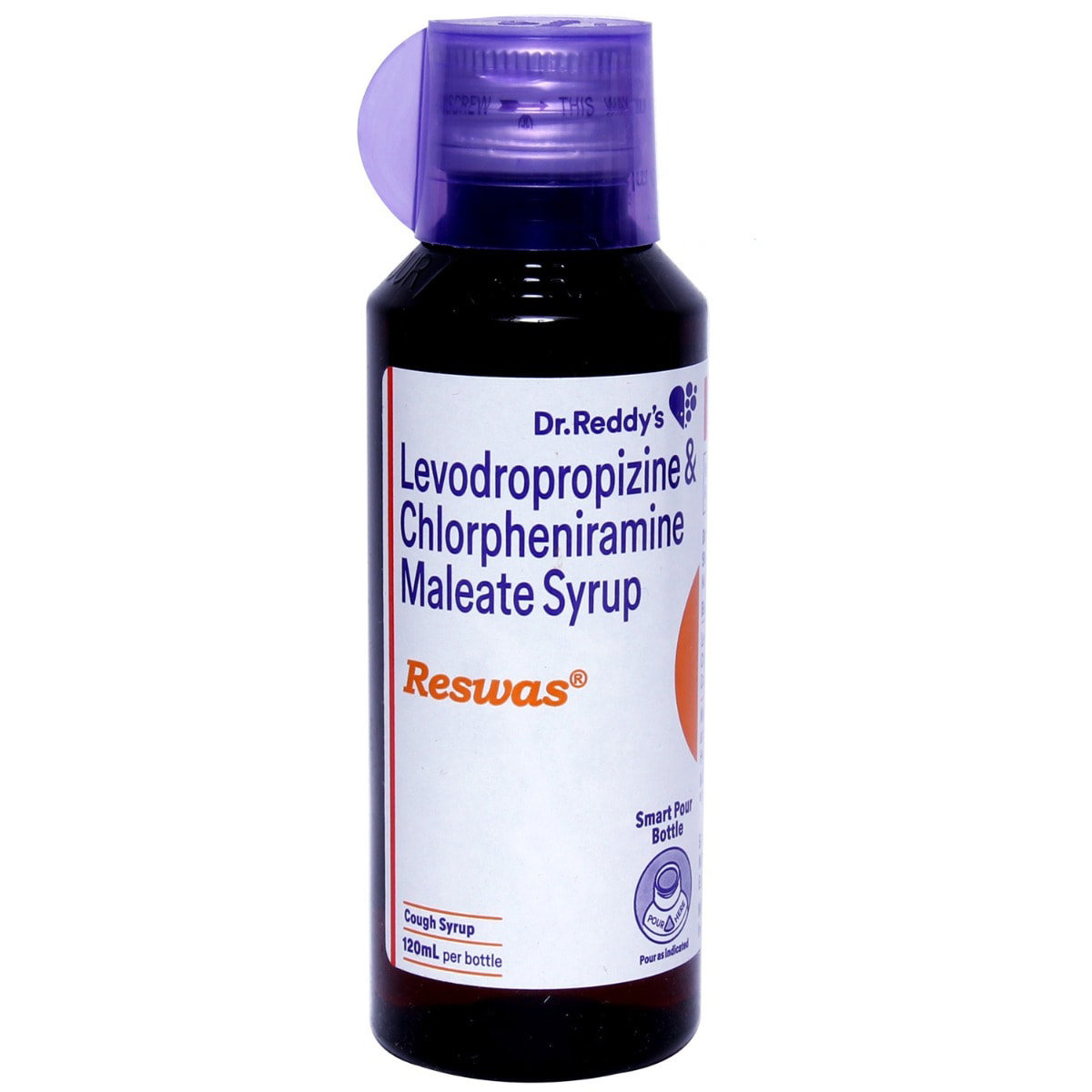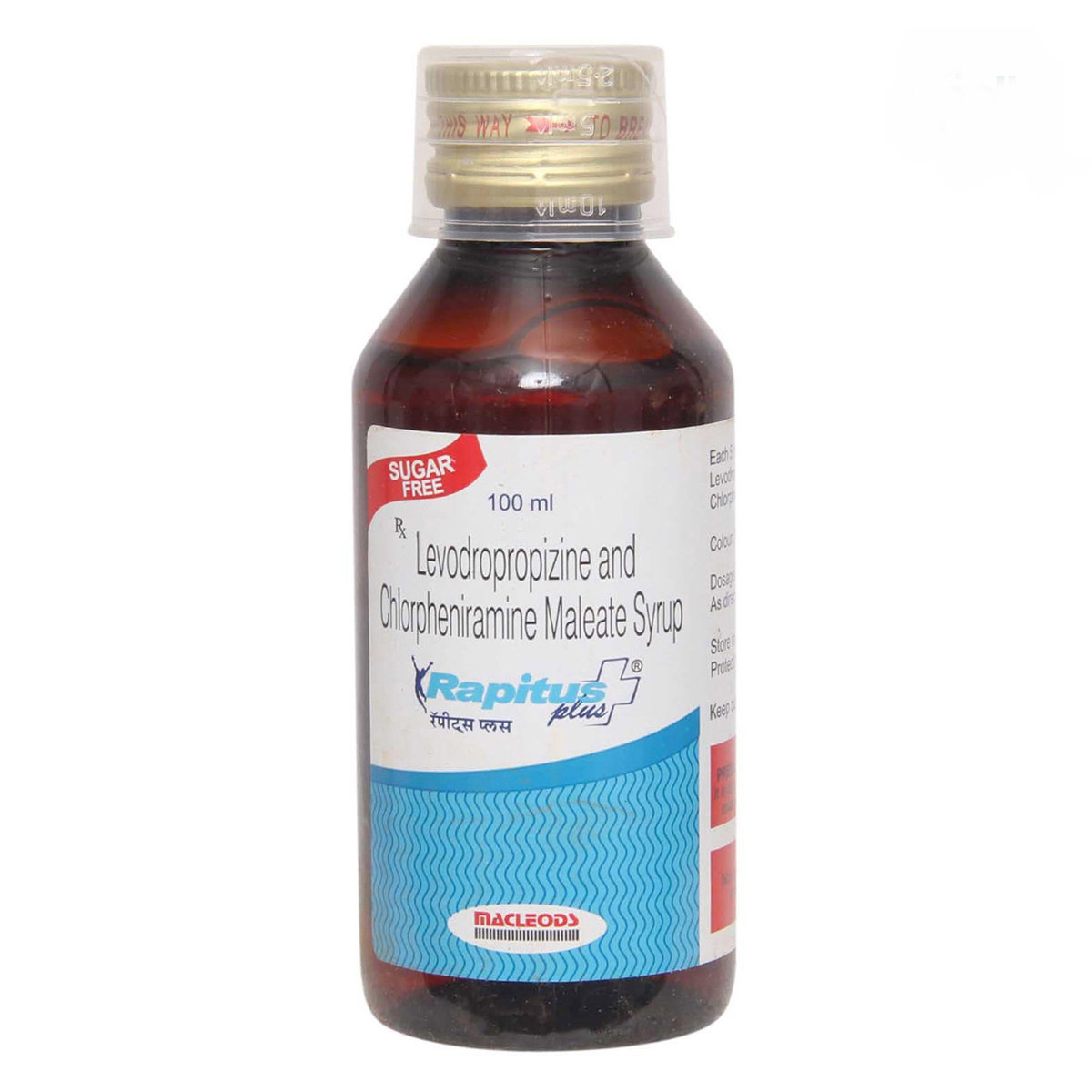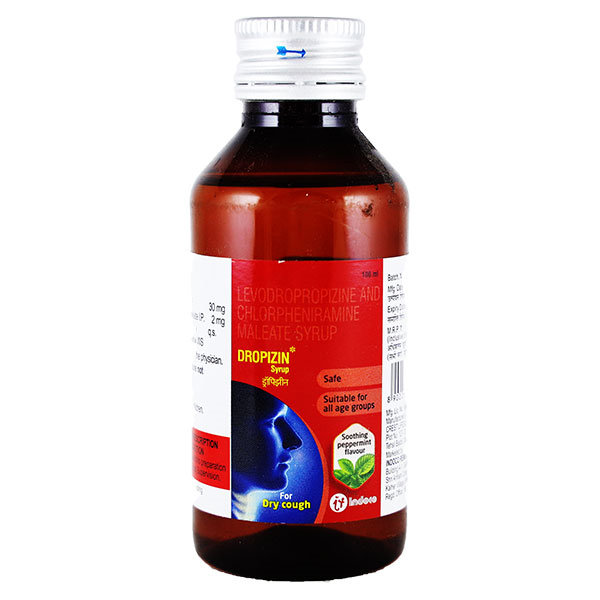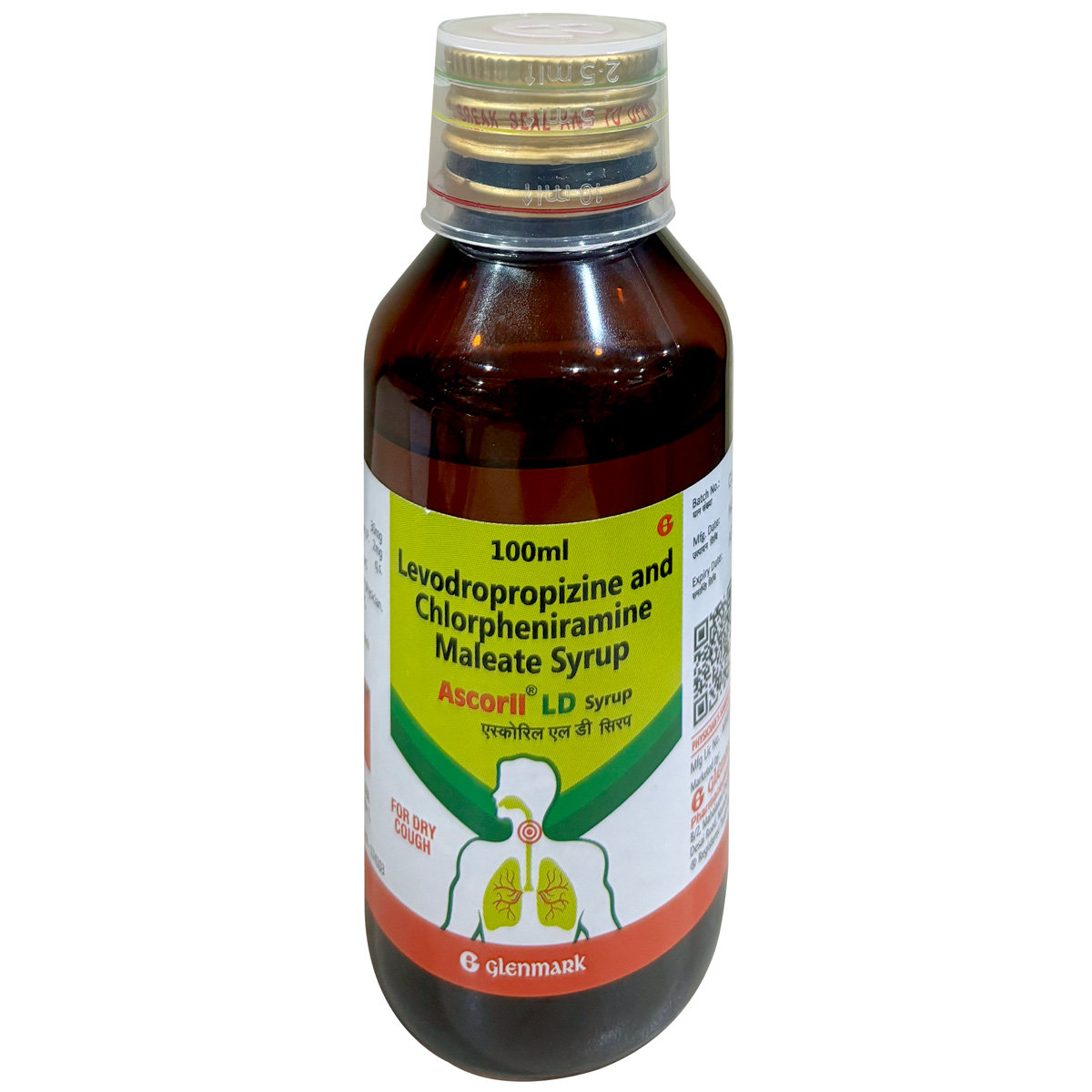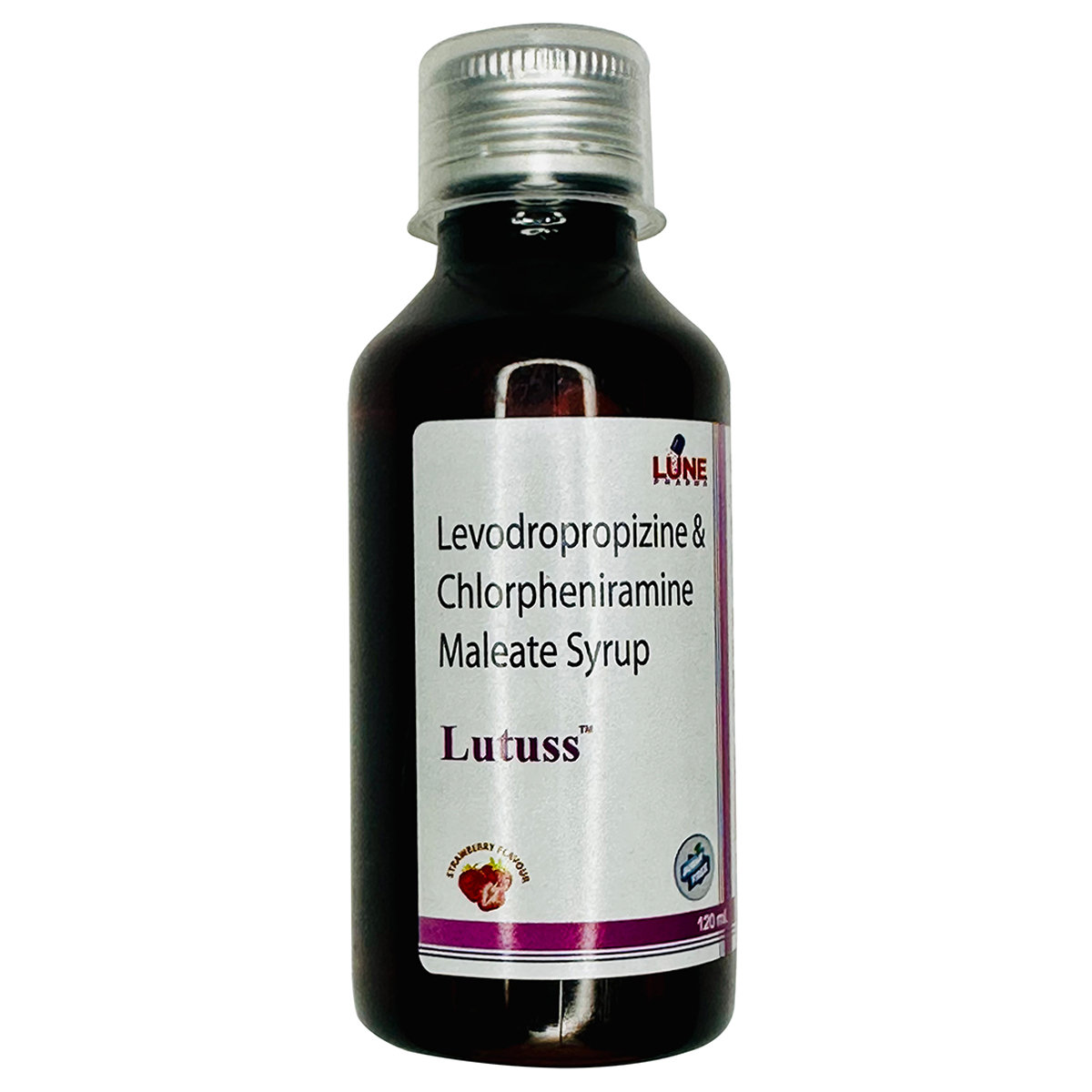Levodropropizine+chlorpheniramine
About Levodropropizine+chlorpheniramine
Chlorpheniramine+levodropropizine is used to treat dry cough. Coughing (dry or productive) is the body’s way of clearing irritants (like allergens, mucus, or smoke) from airways and preventing infection.
Chlorpheniramine+levodropropizine contains Levodropropizine and Chlorpheniramine. Levodropropizine blocks the transmission of nerve signals from the cough centre in the brain to the muscles that produce cough. Chlorpheniramine blocks the action of histamine, a substance responsible for causing allergic reactions.
Some people may experience dry mouth, drowsiness, vomiting, blurred vision, constipation, dizziness, or tiredness. Most of these side effects of Chlorpheniramine+levodropropizine do not require medical attention and gradually resolve over time. However, if the side effects persist or worsen, please consult your doctor.
If you are allergic to Chlorpheniramine+levodropropizine or any other medicines, please tell your doctor. If you are pregnant or breastfeeding, it is advised to inform your doctor before using Chlorpheniramine+levodropropizine. Chlorpheniramine+levodropropizine is not recommended for children below 2 years of age.
Uses of Levodropropizine+chlorpheniramine
Medicinal Benefits
- Chlorpheniramine+levodropropizine is used to relieve cough and symptoms associated with allergies, cold, and respiratory irritation.
- It contains Levodropropizine and Chlorpheniramine, which work together to provide effective cough and allergy relief.
- Levodropropizine acts as a cough suppressant, reducing the urge to cough by blocking nerve signals from the cough centre in the brain.
- Chlorpheniramine is an antihistamine that blocks histamine, helping relieve sneezing, runny nose, watery eyes, itching, and nasal congestion caused by allergic reactions.
- Chlorpheniramine+levodropropizine helps soothe throat irritation, reduce coughing frequency, and improve breathing comfort.
- Chlorpheniramine+levodropropizine is beneficial in treating dry cough, allergic cough, and upper respiratory tract infections accompanied by allergic symptoms.
Directions for Use
- Chlorpheniramine+levodropropizine can be taken with or without food, as advised by your doctor.
- It is advised to take Chlorpheniramine+levodropropizine exactly as prescribed by your doctor, following the recommended dosage to achieve optimal results.
- Check the label for directions before using Chlorpheniramine+levodropropizine.
- Measure the advised dose using the measuring cup and take it orally.
- Avoid using regular household spoons, as they may not measure the dose correctly.
- Shake the bottle well before use.
Storage
Side Effects of Levodropropizine+chlorpheniramine
- Constipation
- Vomiting
- Dry mouth
- Dizziness
- Urinary retention
- Sleepiness or unusual drowsiness
- Blurred or double vision
- Skin Rash
- Headache
Medicines Containing this Salt
View AllDrug Warnings
- If you are allergic to Chlorpheniramine+levodropropizine or any other medicines, please tell your doctor.
- If you are pregnant or breastfeeding, it is advised to inform your doctor before using Chlorpheniramine+levodropropizine.
- Chlorpheniramine+levodropropizine is not recommended for children below 2 years of age.
- Drink plenty of fluids while taking Chlorpheniramine+levodropropizine to loosen mucus and protect yourself from being dehydrated or overheated during exercise and in hot weather, as Chlorpheniramine+levodropropizine contains chlorpheniramine that decreases sweating and increases the risk of heatstroke.
- Inform your doctor if you have high blood pressure, fits, glaucoma, hyperthyroidism (overactive thyroid), chronic bronchitis, asthma, cough with mucus, cough caused by smoking, chronic bronchitis or emphysema (a lung condition causing shortness of breath), or chronic obstructive pulmonary disease (COPD).
- Let your doctor know if you have a blockage in the stomach or intestines, phenylketonuria (a birth defect that causes the accumulation of the amino acid phenylalanine in the body), an enlarged prostate, pheochromocytoma (a tumour in the adrenal glands), kidney, liver, heart or urinary problems.
Drug Interactions
Drug-Drug Interaction: Chlorpheniramine+levodropropizine may have interaction with anti-allergic drugs (diphenhydramine, cetirizine), cough suppressants (dextromethorphan), antidepressants (duloxetine, sertraline), narcotic analgesics (hydrocodone) and antianxiety drugs (alprazolam).
Drug-Food Interaction: Chlorpheniramine+levodropropizine may interact with alcohol. Therefore, avoid consumption of alcohol with Chlorpheniramine+levodropropizine as it may increase the risk of adverse effects such as drowsiness, dizziness, impairment in thinking, or difficulty in concentrating.
Drug-Disease Interaction: If you have high blood pressure, fits, glaucoma, hyperthyroidism (overactive thyroid), chronic bronchitis, asthma, cough with mucus, cough caused by smoking, chronic bronchitis or emphysema (a lung condition causing shortness of breath), chronic obstructive pulmonary disease (COPD), blockage in stomach or intestines, phenylketonuria (a birth defect that causes accumulation of amino acid, phenylalanine in the body), enlarged prostate, pheochromocytoma (tumour in the adrenal glands), kidney, liver, heart or urinary problems, inform your doctor before taking Chlorpheniramine+levodropropizine.
Drug-Drug Interactions Checker List:
Safety Advice

Alcohol
unsafeAvoid consumption of alcohol with Chlorpheniramine+levodropropizine as it may increase the adverse effects. Please consult a doctor before consuming alcohol with Chlorpheniramine+levodropropizine.

Pregnancy
cautionThe safety of Chlorpheniramine+levodropropizine in pregnant women is unknown. Therefore, it is given to pregnant women only if the doctor thinks the benefits outweigh the risks.

Breast Feeding
cautionChlorpheniramine+levodropropizine may be excreted in breast milk and cause harm to the baby. Therefore, Chlorpheniramine+levodropropizine should not be used in breastfeeding mothers without doctor’s advice.

Driving
cautionChlorpheniramine+levodropropizine may cause dizziness, drowsiness, blurred vision or impair thinking in some people. Therefore, drive only if you are alert after taking Chlorpheniramine+levodropropizine.

Liver
cautionTake Chlorpheniramine+levodropropizine with caution, especially if you have a history of Liver diseases. Your doctor may adjust the dose as required.

Kidney
cautionTake Chlorpheniramine+levodropropizine with caution, especially if you have a history of Kidney diseases. Your doctor may adjust the dose as needed.

Children
cautionChlorpheniramine+levodropropizine is not recommended for children below 2 years of age. However, please consult a doctor before using Chlorpheniramine+levodropropizine in children.
Habit Forming
Diet & Lifestyle Advise
- Avoid dairy products such as milk, as they may increase mucus production. Also, avoid processed or refined foods to relieve cough. Instead, replace baked foods, fried foods, white bread, white pasta, French fries, sugary desserts, and chips with green leafy vegetables.
- Drink plenty of fluids to avoid dry throat while you have a cough and loosen mucus.
- Avoid citrus fruits as it may worsen the cough. Eat fruits rich in water content such as pears, watermelon, peaches and pineapples.
Special Advise
You are recommended to inform your doctor that you are taking Chlorpheniramine+levodropropizine before undergoing any medical tests or surgery.
Patients Concern
Disease/Condition Glossary
Cough: Coughing is the body’s way of clearing irritants (like allergens, mucus, or smoke) from airways and preventing infection. Coughs may be dry or productive. A productive cough (wet cough) brings up sputum (phlegm, mucus, and other matter) from the lungs. Cough is commonly caused as a response to allergy or viral infection, but coughing up mucus is possibly an indication of infection in the respiratory tract. If you are coughing thick, solid white mucus, it indicates you may have a bacterial infection in the airways. If the mucus is clear or light-coloured, it indicates you may have allergies or a minor infection in the respiratory tract, and yellow or green mucus indicates a respiratory infection.
FAQs
Chlorpheniramine+levodropropizine is used to treat dry cough.
Chlorpheniramine+levodropropizine contains Levodropropizine and Chlorpheniramine. Levodropropizine is a cough suppressant that decreases the activity of the cough centre in the brain, decreasing the urge to cough. Chlorpheniramine is an antihistamine (anti-allergic drug) that blocks the action of histamine, a substance responsible for causing allergic reactions. It helps to provide relief from symptoms of allergy such as sneezing, a runny nose, watery eyes, itching, swelling, congestion or stiffness.
No, you are not recommended to consume alcohol with Chlorpheniramine+levodropropizine as it may increase drowsiness. However, please consult a doctor before consuming alcohol with Chlorpheniramine+levodropropizine.
Yes, Chlorpheniramine+levodropropizine may cause dry mouth as a temporary side effect in some people. It is not necessary for everyone taking Chlorpheniramine+levodropropizine to experience this side effect. However, to avoid such side effects, drink plenty of water, regularly rinse your mouth, and practice good oral hygiene. However, if the condition persists or worsens, please consult a doctor.
Chlorpheniramine+levodropropizine may be used to provide relief from allergic symptoms such as sneezing, runny nose, throat irritation or watery eyes. Chlorpheniramine+levodropropizine contains Chlorpheniramine, an anti-allergic drug that works by blocking the action of histamine, a substance responsible for causing allergic reactions.
You are recommended to avoid taking Chlorpheniramine+levodropropizine if you have asthma, glaucoma, an enlarged prostate, urinary problems, or blockage in the stomach or intestines. However, if you have any of these conditions, please inform your doctor before taking Chlorpheniramine+levodropropizine.
Chlorpheniramine+levodropropizine is not recommended for children under 2 years of age. However, if prescribed by a doctor, it should be used with caution in children over 2 years of age, as misuse of Chlorpheniramine+levodropropizine in children may lead to serious adverse effects.
You are recommended to take Chlorpheniramine+levodropropizine for as long as your doctor has prescribed it. However, if the symptoms persist or worsen, such as rash, fever, or persistent headache, after one week of using Chlorpheniramine+levodropropizine, please consult your doctor.
No, you are not recommended to stop taking Chlorpheniramine+levodropropizine without consulting your doctor as it may worsen cough or cause recurring symptoms. Therefore, take Chlorpheniramine+levodropropizine for as long as your doctor has prescribed it, and if you experience any difficulty while taking Chlorpheniramine+levodropropizine, please consult your doctor.
Yes, Chlorpheniramine+levodropropizine can cause drowsiness as a common side effect. If you experience this, be cautious and avoid activities that require mental alertness, such as driving, operating heavy machinery, or other tasks that demand attention and focus. Please take the necessary precautions to minimize risks.
Yes, Chlorpheniramine+levodropropizine may cause serious side effects, although these occur in rare cases. These may include difficulty breathing, swelling of the face, lips, tongue, or throat, sudden decrease in blood pressure, blurred vision, excitability, or feeling irritated. If you experience any of these side effects, stop using Chlorpheniramine+levodropropizine and seek medical attention immediately.
Taking more than the recommended dose of Chlorpheniramine+levodropropizine will not make it more effective and can be harmful. If you feel that the current dose is not working or if your symptoms worsen, please consult your doctor. They may adjust the dose or prescribe a different medication based on your condition.
No, it is not advisable to breastfeed while using Chlorpheniramine+levodropropizine because Chlorpheniramine+levodropropizine may pass into the breast milk and can cause harm to the baby. Therefore, please inform your doctor if you are breastfeeding before using Chlorpheniramine+levodropropizine.
Do not use Chlorpheniramine+levodropropizine if you are allergic to it or if you have severe liver impairment, bronchorrhea, or disturbed muco-ciliary function (such as Kartagener syndrome or bronchial dyskinesia). Additionally, Chlorpheniramine+levodropropizine is not suitable for individuals with rare hereditary problems, including fructose intolerance, glucose-galactose malabsorption, or sucrose-isomaltase insufficiency. It is also essential to inform your doctor before using Chlorpheniramine+levodropropizine if you have kidney disease, are taking other medications, or are pregnant or breastfeeding.
Store Chlorpheniramine+levodropropizine in a cool and dry place at room temperature below 25°C, away from sunlight and moisture. Keep out of reach of children.
The common side effects of Chlorpheniramine+levodropropizine are dry mouth, drowsiness, vomiting, blurred vision, constipation, dizziness, or tiredness. Please consult your doctor if any of these side effects persist or worsen.
